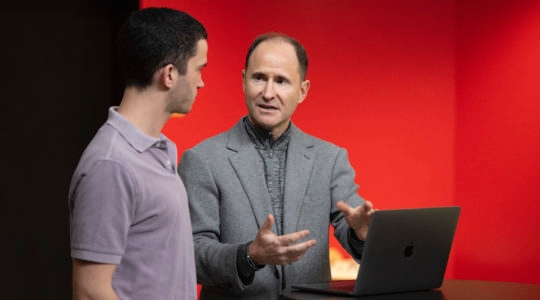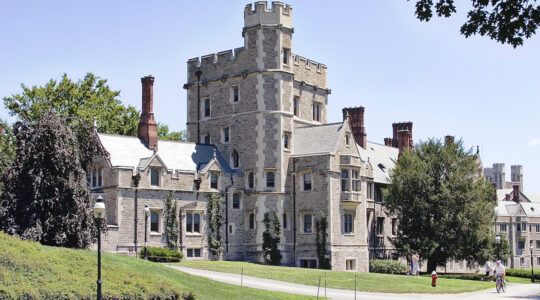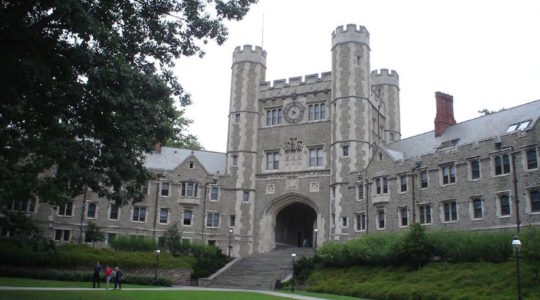WASHINGTON (JTA) – Halting Palestinian unilateral actions at the United Nations will be among the “broad priorities” of the U.S. government at the U.N. General Assembly meeting.
“We will continue to oppose unilateral Palestinian actions in the U.N. on issues that can only be achieved through direct negotiations,” Esther Brimmer, assistant secretary of state in the Bureau of International Organization Affairs, told reporters on Sept. 21.
The Palestinians are expected to push for non-member state status in the world body, whose fall session began on Sept. 18. Their push last year for membership via the U.N. Security Council was defeated.
This year, in the much larger General Assembly, the Palestinians are expected to receive the support of nearly all Muslim and Third World countries. That has set off a diplomatic flurry by the United States and Israel to make sure that Western countries do not support the bid, which they say will only hamper stalled face-to-face negotiations by entrenching hard-liners on both sides of the conflict.
The push against Palestinian actions will be part of “continuing to advance U.S. objectives and interests,” Brimmer said, adding that the list includes “effective implementation of international sanctions on Iran’s illicit nuclear program.”
Other priorities will include expanding U.N. reform efforts; maintaining global leadership on human rights, including putting a spotlight on Iran, Syria, North Korea and Sudan; and working toward the Millennium Development Goals and on Rio+20, programs aimed at poverty eradication and higher sustainable development levels.
On Tuesday, President Obama will address the General Assembly. The next day, Iranian President Mahmoud Ahmadinejad will have his turn at the rostrum, followed on Thursday by Israeli Prime Minister Benjamin Netanyahu and Palestinian Authority President Mahmoud Abbas.
On Friday, Secretary of State Hillary Clinton will devote most of her day at the U.N. to Middle East issues. That will include hosting an ad-hoc meeting on Syria “to highlight the continuing deterioration of the situation there and to promote transition planning,” Brimmer said.
JTA has documented Jewish history in real-time for over a century. Keep our journalism strong by joining us in supporting independent, award-winning reporting.





